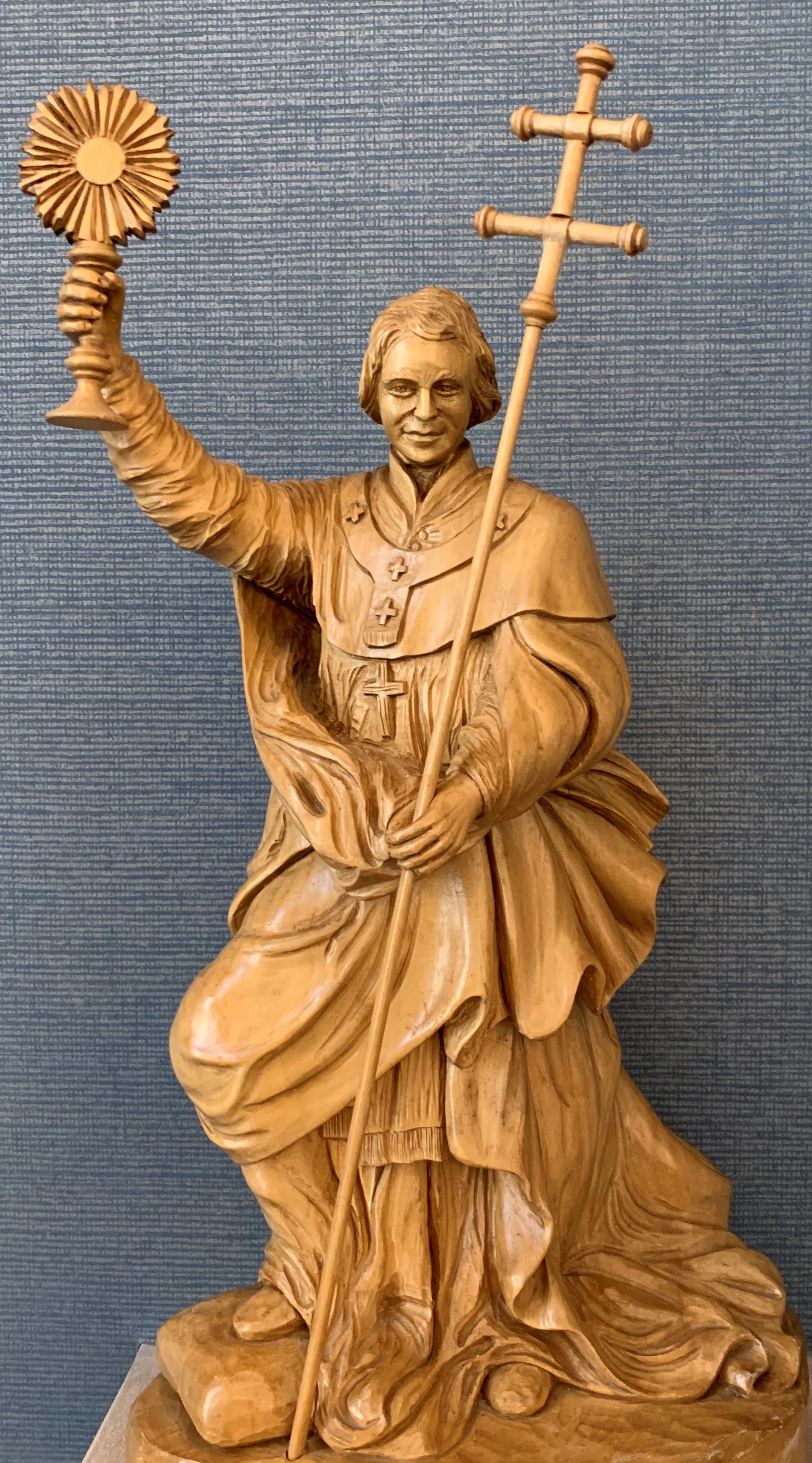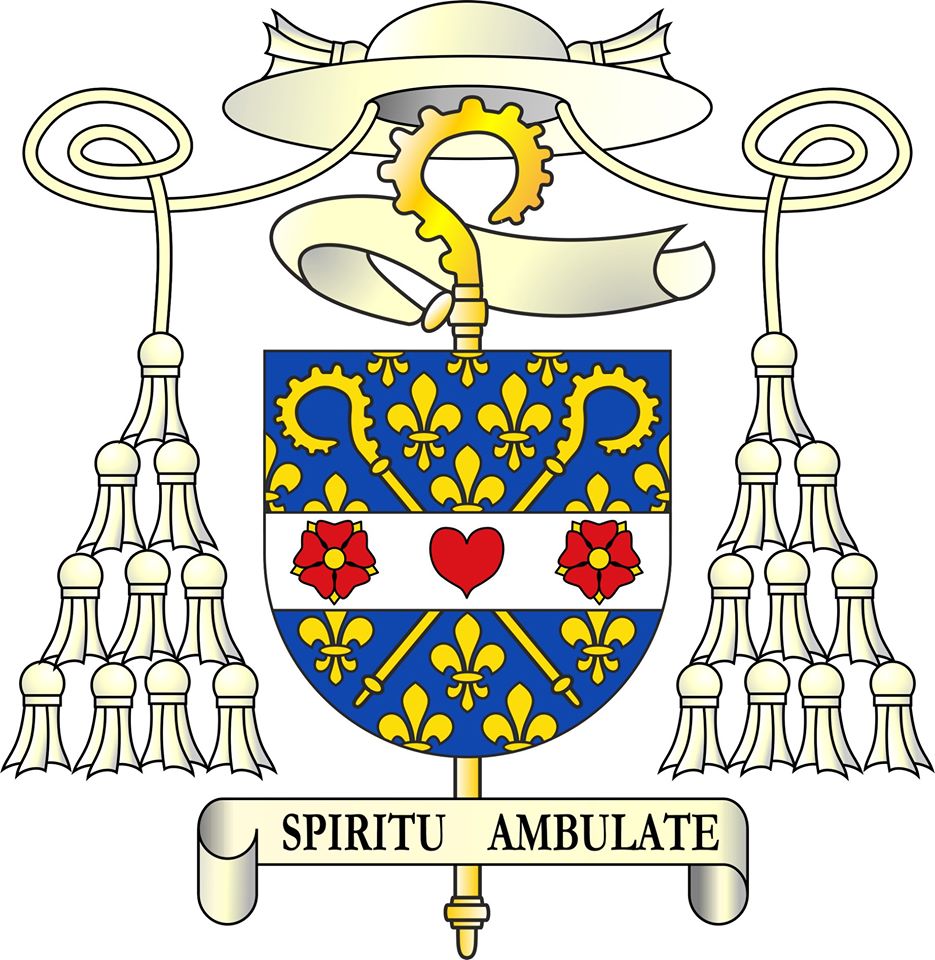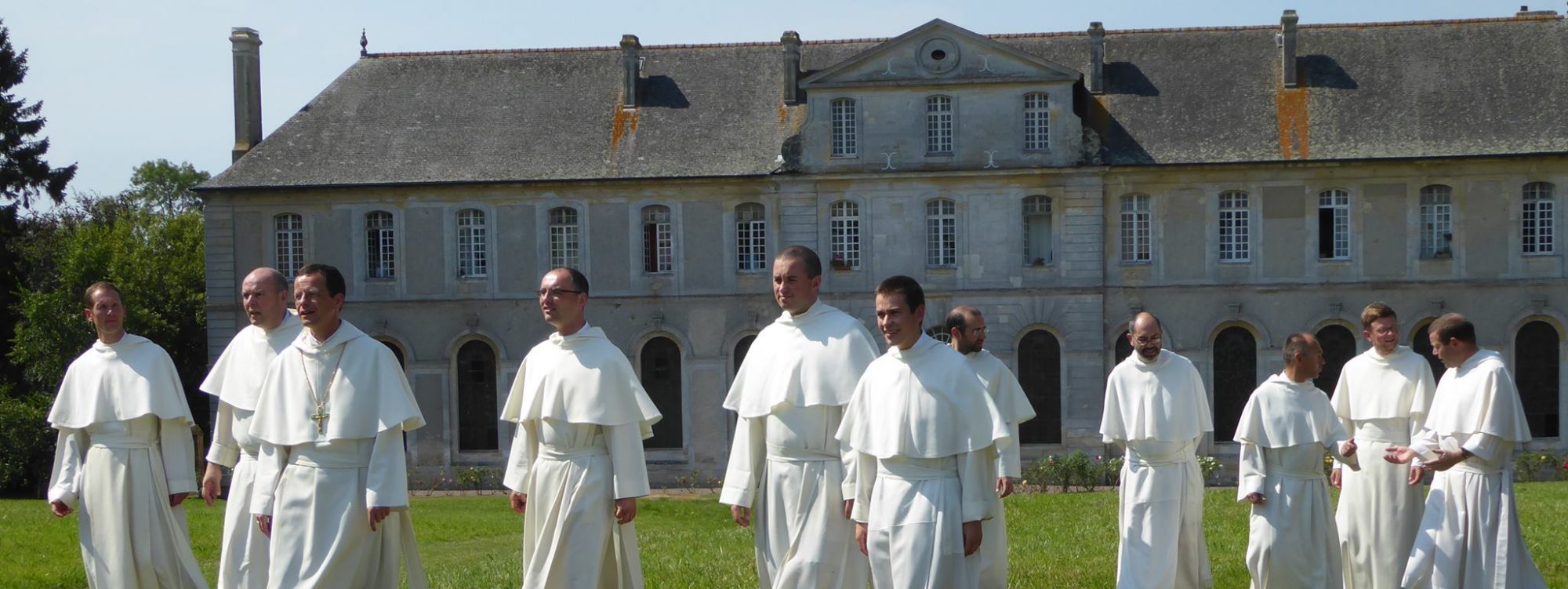
Dear Brothers and Sisters,
“Among the great he was great, humble among the poor, high ranking among the noble, temperate among the ignoble. He was made all things to all.” (1 Cor. 9,22) This quote from the Vita B, is taken as the text of the responsory at the first vespers of the solemnity of our father Saint Norbert. The original context is a description of Norbert’s character relating why he was successful and beloved at the courts of the archbishop of Cologne and the emperor. The sketch of Norbert’s character in the Vita B also mentions that: “he followed his own judgment as a guideline and directed his life according to his judgment”. In the context of the life at the archiepiscopal or imperial court, this meant of course that he, independently from the opinion of those around him, indulged himself in all kinds of worldly pleasures. But the description of Norbert’s character, this blend of independency and kind affability which made him to be “great among the great and humble among the poor”, applies to many episodes during his life as told by the authors of his Vitae.
In the Vita A, we find a similar description of Saint Norbert, in the context of the narrative about the five more quiet years after he could neutralize the violent opposition against his policy of reclaiming the archdiocese’s full ownership of the ecclesiastical possessions: “These events took place in the third year of Norbert’s archiepiscopacy. After this he ruled for five years and from day to day gave honor to the ministry entrusted to him by God, advancing in all religion and virtue, preserving the unity of the holy church and resisting and protesting against those who disturbed it and against all schismatics, embracing the good, giving counsel to the desolate, supporting the poor and orphans and widows, fostering and helping to spread religious orders, while setting an example of religious life, presenting himself affably both to the lesser and the greater as the dignity of his office could bear. Mindful of the divine generosity and grace, he daily offered to the Lord his God an upright conscience with a pleasant and charming demeanor.”
Saint Norbert’s life of conversion did not change the firmness nor the kindness of his character, but changed his scale of values and, therefore, his personal judgment which he followed throughout his life. The change brought about by conversion was the ever growing sense of God’s presence which Norbert experienced while living with Christ as his guide, an experience cultivated by prayerfully celebrating the Eucharist and meditating on Holy Scripture as a practical guideline.
I would like to highlight a few episodes from Saint Norbert’s life as archbishop, showing his faithfulness to his propositum. They need to be interpreted while taking in account the hagiographic nature of the Vita A, a genre prone to its typical commonplaces. However, the narrative offers lively and probably meaningful details which exceed the conventional hagiography.
“At Norbert’s approach to the city, the people gathered. All gave thanks that they had deserved to receive a man of holy reputation as the shepherd of their souls. Gazing at the city of Magdeburg, to which he was being led, he entered barefoot. After he was received in the church he entered the palace accompanied by many people. However, since he wore a shabby cloak, he was not recognized and was turned away by the doorkeeper. But when the porter was reprimanded by others, Father Norbert said smiling, “Do not be afraid, you know me better and see me with a clearer eye than those who force me to this palace to which I, poor and simple, ought not be raised.”
The Vitae underscore Norbert’s reluctance to accept the archiepiscopal office, an accentuation rather inspired by the hagiographic genre than by historical facts, but the episode shows Norbert’s desire to be a bishop in line with the Gregorian reform as he understood it. “Living in a time of upheaval and reform, he first understood this as a call to himself, as an invitation to change his life, to conform more and radically to his calling.”[1] This understanding of reform as implying a call to personal poverty and simplicity is expressed by entering the archiepiscopal city as a poor penitent, but it gets a gentle note in the way he treats the doorkeeper by excusing him when he is reproved by others.
A similar evangelically inspired humanity appears in the context of the somewhat clumsy attempts to kill the newly appointed archbishop and in the narrative about the last riot against Norbert.
The Vita A has two stories about an attempt to kill Saint Norbert through the hands of a hired killer. The first one is found in the context of the reconciliation of penitents on Holy Thursday. The one sent to murder the archbishop presents himself disguised as a penitent but Norbert unmasks him. His servants find a long sharp knife under the hit man’s garment: “When asked why he had come so armed, the man fell at Norbert’s feet trembling, stunned and fearing death, and confessed that he had been sent to kill the man of God. After hearing the names of those who had hired him to commit the crime, all were amazed that household members and secretaries – men at whose hands official matters were handled – were found to be at the heart of the betrayal. The just Norbert, however, calmly responded that it was no wonder that the ancient enemy was preparing these snares for him, since on this same most sacred night he persuaded the Jews to proceed to the death of our Lord Jesus Christ. Norbert was happy that he was found worthy to share in the Lord’s passion, especially on that day when mercy is given to those without hope, pardon to sinners and life to the dead.”
After a second attempt to take Norbert’s life, the hit man flees but: “…when others were pursuing the fleeing attacker to capture him, the man of God said: ‘let him flee. You should not render evil for evil. He did what he could and what God permitted’.”
The narratives show how Norbert remains calm and steadfast in this critical situation. The literal imitation of Christ shows itself in his magnanimity towards those who were put forward to commit the crime from which their patrons shrank away. This did not imply that Norbert changed his design to reorganize the management of the diocese. He remained faithful to his plans to reform Magdeburg with the help of his confreres so that it might become a bridgehead of missionary activity in the wide region. But at the same time he wanted to act peacefully, concretely guided by evangelical principles which he did not put aside to reach his goal.
The attempts to thwart Norbert’s plans to reform the diocese culminated in a big uproar in 1129. The account of these riots can be found in chapters 19 and 20 of the Vita A. Norbert’s adversaries tried to justify their actions with a false accusation (he would have broken altars in order to steal relics) and denied the lawfulness of the transfer of St. Mary’s church to a chapter of Premonstratensians. During the skirmishes, Norbert’s life is said to be endangered several times. During one of the fights a soldier defending the archbishop is severely wounded. Shortly afterwards, partly thanks to the intervention of influential noblemen of the region the conflict is sufficiently appeased to allow Norbert to govern effectively his archdiocese during the five years ahead. The narrative of Vita A about the reconciliation probably gives a truthful account of both the magnanimity and the practical sense of Saint Norbert: “His adversaries gathered contritely and were humbled before him. He received them kindly and demanded only one thing of them, that they immediately be reconciled to his wounded soldier. This they accepted most willingly and repaired the soldier’s ruined house, giving him forty silver marks in compensation for the wound he received.” This attention of Saint Norbert to the factual situation of the common people that surrounded him tells us a lot about the spirit with which he wanted his communities to be inspired. He was not a mere tactician, but remained a shepherd moved by love and compassion for the individual people in his care. This bifocal attention probably contributed to his success as missionary. He succeeded not only to shape but also to inspire a structure that would bear fruit long after his death.
Abbot General Thomas Handgrätinger summarizes: “…Norbert, who was fully committed to the small and the tangible, never lost sight of the big picture. He turned to the people in front of him, no matter what rank or position he was. If he noticed need or strife, he made it his own concern. If he came across injustice or falsehood, he could activate all powers to help truth to victory and justice to break through.”[2] Norbert was great among the great and humble among the poor because he remained faithful to Christ as his guide in small and tangible things as well as in caring about the “big picture”. May he inspire us to be guided in everything, small and big, by God’s word as he was.
Rome, May 15, 2020
Jos Wouters, abbot-general

[1]THOMAS HANDGRÄTINGER, O. PRAEM., Prämonstratenser. Gemeinsam mit Gott bei den Menschen, 900 Jahre Prémontré – Lust auf Zukunft, Norbertus-Verlag Magdeburg, 2018, p.124.
Feast of Saint Norbert 2020[2]THOMAS HANDGRÄTINGER, O. PRAEM., o.c., 129.

